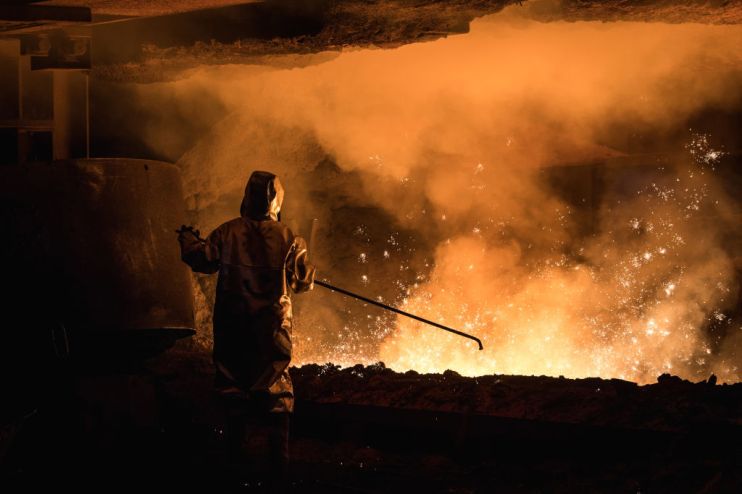Industry rages as UK prepares to scrap half of tariffs on steel imports

The government is set to scrap half of its current steel imports safeguards, it was announced today, sparking cries of outrage from an already struggling industry.
In 2019 the EU introduced the quotas to prevent the bloc from being flooded by excess steel products after Donald Trump imposed 25 per cent tariffs against imports to the US.
When the UK left the trade bloc it decided to keep the measures, which expire at the end of this month, in place.
The Trade Remedies Authority (TRA) said it had recommended the measures be extended for 10 products for three more years, but said measures should be axed across nine products.
But such a move will risk thousands of jobs outside the south-east, a industry body said, while the Labour Party said that ministers should use emergency legislation to amend the regulations governing the decision.
Together, industry contributed £2bn to the UK economy in terms of gross value added last year, but has been in a downward spiral since the sector was engulfed in crisis in 2015.
Sluggish demand and rising imports of cheaper Chinese steel saw thousands of jobs at UK steel mills slashed, and the fallout has continued to damage firms like Tata and British Steel, which was taken over by a Chinese firm last year.
The categories that will see their protections axed include tin cans, and make up about 18 per cent – 1.9m tonnes – of average annual UK steel imports.
The TRA, a newly set up independent body, said that there was no significant increase in imports in the period in which it carried out its investigation.
Before the Open: Get the jump on the markets with our early morning newsletter
Oliver Griffiths, the body’s chief executive, explained: “The Trade Remedies Authority has been set up by statute to provide impartial, data-driven economic assessments like this recommendation on steel safeguards.
“We have listened carefully to all interested parties throughout the review and we have made some important changes to our preliminary decision in light of new information provided over the past few weeks.”
But the decision met with dismay from the industry, with trade body UK Steel describing it as a “hammer blow” against the sector.
“In a global market characterised by trade barriers, the UK unilaterally is cutting its safeguarding measures in half whilst the EU and US keep theirs in place”, director-general Gareth Stace.
“We will become a magnet for huge volumes of steel imports diverted from these markets, threatening the long-term viability of steel in the UK and calling into question the sector’s ability to make the major investments required for decarbonisation.”
He added that the government should shoulder the blame for the decision because its post-Brexit trade regime had been “proven ill-equipped to deal with the rapidly changing global trading environment”.
A Government spokesperson said: “All interested parties, including importers, domestic producers and overseas exporters, have been able to participate in the review to provide evidence to factor into the Trade Remedy Authority’s assessment. The TRA is a non-departmental public body, and all its decisions are based on a thorough analysis of the evidence.
“The Trade Secretary’s decision on the recommendation will be published before the measure is due to expire on 30 June 2021.”
Bill Esterson, Labour’s shadow international trade minister: “This is a deeply disappointing – if sadly unsurprising – recommendation from an organisation that is fundamentally flawed in its composition and its remit and has simply not given sufficient weight to the implications of this verdict for steelworkers, their families, and the communities that rely on that industry.
“The Government will say their only option is now to accept this recommendation, but that is simply not true. They must instead accept Labour’s offer to work together in the national interest and come forward with emergency legislation, which we will support, to amend the regulations and allow Britain’s steel safeguards to be maintained in full.